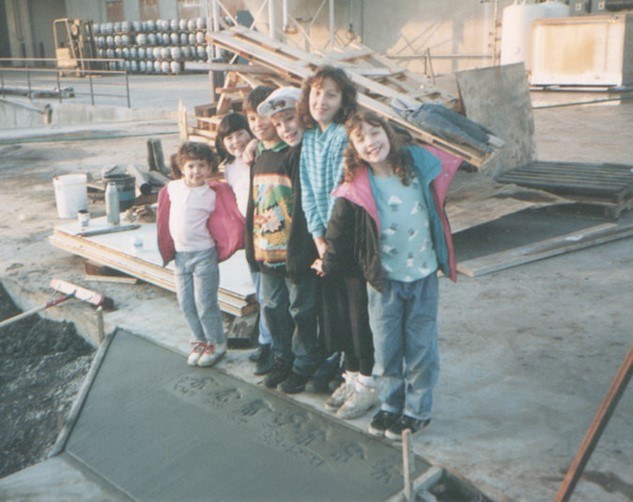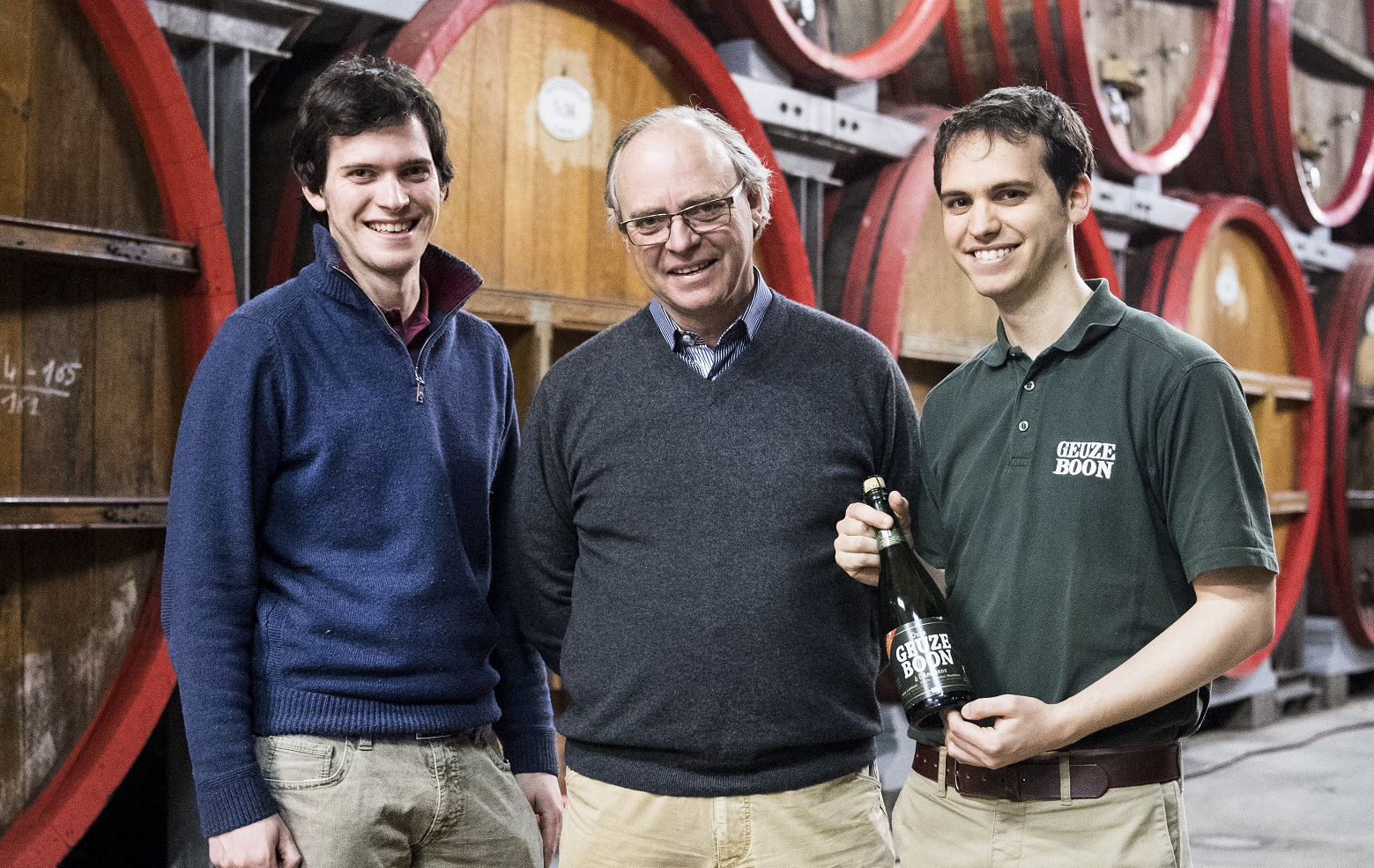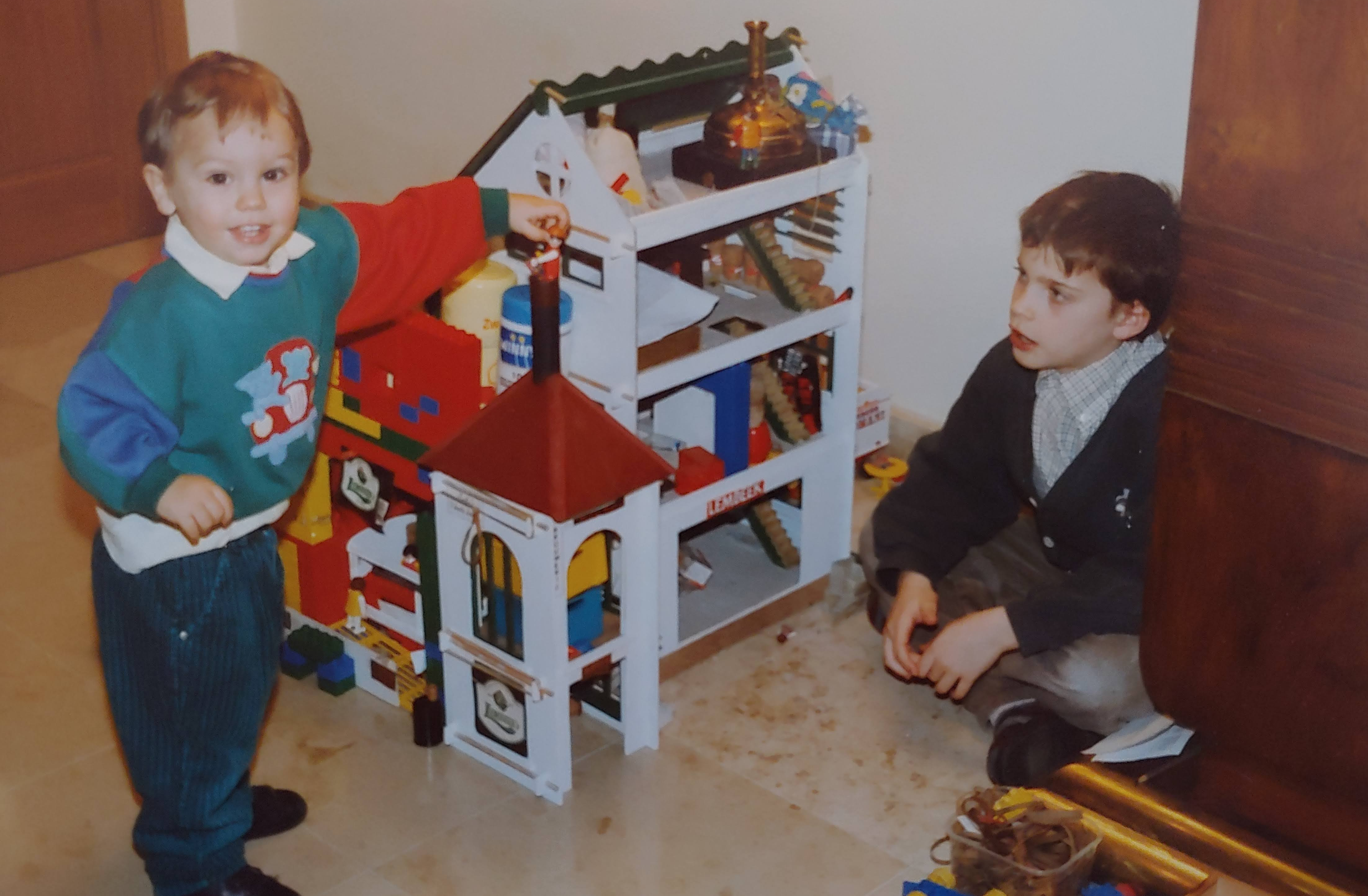Family Matters

As the hub of manufacturing in the UK since the industrial revolution, the North, and more specifically Yorkshire, is the proud home of many well storied family businesses. Our company is named in honour of our founder Ian Clay’s Grandfather’s mill in Sowerby Bridge, that dates back to 1835. On James’ mother Ann’s side was Edwin Uttley and Sons, a family business specialising in the manufacture of overalls set up by her Great Grandfather in 1917. In a curious twist of coincidence, overalls made by Ann’s family were worn by generations of weavers in Ian’s grandfather’s mill for several decades before Ian and Ann met.

During the transition to the 2nd generation, with James now at the helm, it felt right to reflect on what it means to be a family business. Gathering thoughts from Ian and James Clay, and two family businesses that we’re proud to work with: Karel and Jos Boon (2nd Generation of Boon), and Sierra Grossman (2nd Generation of Sierra Nevada). Each of the three businesses were founded within a few short years of each other, Boon first in 1975, James Clay and Sons in 1978, and Sierra Nevada following shortly after in 1980.
One thing that all three families have in common is the immense commitment from the founders and their life partners in the early days. Building a business from nothing is no easy feat, and means long hours away from family. This means the family has to come up with smarter solutions that end up ultimately integrating family and business life. Sierra Grossman remembers that ‘if we wanted to see Dad we’d go to the brewery as he’d be there six or seven days a week. It ended up being our playground. Obviously not something you could do now having kids jumping around on pallets of beer’. With the brewery taking up so much of her father Ken’s time it meant that ‘growing up we always looked at the brewery as another sibling. I was born first, so the brewery is kind of the middle child.’

More than just being a convenient fun place to hang out as kids, being around the brewery and process so early on builds a deeper relationship with the end product. The Boon family grew up in a house attached to the brewery, which Karel suggests ‘is probably comparable to living on the family farm or if your father was a baker living beside the bakery, it was normal to live next to the business. It means we could grow up appreciating the product as well.’ Despite this integration and proximity to the brewery itself, Karel’s brother Jos doesn’t feel that his parents pressured them or their siblings into joining the business. ‘If you make beer, it’s a never ending job, to be nearby makes sense. But also they never said to us that we had to come into the business. For us the brewery was something that was there, and we had a lot of interest in it, but it was never obligatory to become a brewer.’
Being part of a family producing or handling delicious beer has a weird effect on relationships and identity. Jos remembers that ‘We were known as the sons and daughters of Geuze or Kriek Boon, not the people but the beer.’ As if somehow the identity of the brewery had superseded that of his parents.

Then logically once you and your friends move towards the age of being able to consume the amazing beer that you’re surrounded by it brings another draw. James Clay remembers a sudden surge in friends visiting his house, around his later teenage years. ‘I realised my friends would always want to come round to ours, it didn’t take long to realise it was the fridge full of amazing Belgian beer that was the big draw.’ Certainly better than sneaking a supermarket shandy from the fridge.
For Jos Boon it was extremely clear from a very young age that he wanted to follow in his father Frank’s footsteps. ‘I was always interested in beer, since I was born. I started helping Frank from the age of 6. I was always talking about it, even at school, so much that in the last year of kindergarten we brought the whole class to come and visit the brewery for a tour.’

Karel recalls that his brother was really creative, and had made his own scale model of the brewery. Any time something new was installed in the brewhouse, his model grew alongside it. Eventually he’d get to build a brewery for real, helping Frank with the install of an entirely new brewhouse in 2013. Despite being in his last year at university, Jos ran the new brewhouse himself 24 hours a day, seven days a week for a year and a half.

Joining the family business is not always an obvious or easy choice though. Despite being inspired by watching Ian building the business, and having a passion for beer, James remembers strictly not wanting to enter the family business ‘It was never in my master plan. I was younger, and I wanted to do my own thing, not someone else’s. But after experiencing the people at the heart of the business I realised it was something I valued and felt a welcomed responsibility to protect and develop it’. James studied Economics which led to an experience of recruitment in ‘the City’. One interviewer in particular gave him a grilling, before ending the interview with the typical ‘do you have any questions for me’ to which he decided to turn the tables,asking if they enjoyed their job. ‘They were totally floored by it. The best they could answer was to reflect on their time doing charity work during a sabbatical, and said the only difference between that and this was that you get paid more. That struck me as typical of the kind of person I’d be around entering the London finance scene, it made me stop and think ‘I can’t take this direction, it’s not right for me’. Ever the pragmatist, Ian suggested to James that there was some holiday cover needed. This ended up taking him around every department in the business, learning from the ground up and over a decade later it hasn’t really ended.
Sierra had a similar experience, but entered the family business much earlier on starting out washing dishes in the taproom from the age of 15. Eventually she moved into the brewery side and ended up doing pretty much every role in the brewery outside of production, all the while studying Health Education at college. ‘I was living my life and figuring it out. It was never known that I’d end up working in the brewery.’ In the end, being part of a family business offers a draw that the wider working world can’t replicate. ‘I’m part of this, the brewery, and the culture, for the business and our family. The beer is a bonus really. What I like about it is the culture, as it’s an extension of our family. It’s been part of my life forever and for me it’s about preserving that legacy.'

Another experience that all three families share is the impossible challenge of drawing the line between family and business life. For the Boons, with their home and work lives taking place in the same location the two are synonymous ‘We don’t really have formal meetings, because all the times we meet it’s just informal. Even say, at a family barbecue, we can talk about our private stuff, but generally it comes down to the brewery’. Sierra finds that having this additional space to talk through ideas or challenges can be useful though ‘there’s always business discussed. You can’t turn it off. But at the same time it's great, as we all care. Each of us come at problems differently, but our intent is always the same.’ In the Clay household James reckons that they do try to make some delineation. ‘My mother would probably passionately disagree, but I think we’re quite good at saying there are certain things that are work conversations and certain that aren’t. That doesn’t mean we don’t talk about work at home. We certainly do, but more about ‘this is an interesting beer’ or what’s going on in the scene’.

The second generation do have the advantage of a head start, beginning their career with the hindsight of their forebears experience. James has certainly benefited from this and feels that ‘there is such a leapfrogging being in a family business. I’d never have the experience I have by this age in any other way. I feel like that is of a huge benefit to the business, and it’s up to me what I do with that’. This effect is further multiplied when passing the reins over to a second generation with multiple members. There is an exponential effect on the amount of time available for them to focus on running the business. Karel finds that working with his brother, compared to his Father flying solo in the beginning ‘there is double the time available, but not twice the experience. My Brother is much more experienced than I am in production, and having the time to focus on just one facet helps us in going deeper and being more detailed’. Moving a business to the second generation is a very tricky process though. It’s likely that the founder has dreamt of it since day one, but never really considered exactly what it’d look like. Sierra Nevada took a different approach to this in 2018 as they appointed Jeff White as CEO, the first from outside of their family. ‘My father is a very unique individual, probably the smartest I’ve ever met and it’s a challenge to us as the 2nd generation to fill those shoes. My brother Brian and I report to Jeff, but we’re still part of the ownership structure. It’s a unique position to be in, and we have that trust that our CEO will be able to take it to where it needs to go. It redefines the role of what it means to be a family member in our business.’
It’s no coincidence that family businesses are such an integral part of the James Clay portfolio. Having built up a network over the past 40 years Ian feels that ‘the family businesses do like working with us because we’re a family. Huyghe for example, the relationship started with me and Alain, and I know his father too. But now Alain speaks to James, the future of our business, and in turn James will end up working alongside Alain’s son, the future of theirs. I was with Alain the week his son was born, and I think these personal connections help build a deeper relationship.

This connection and ethos comes through to the end consumer too, who tend to prefer buying from family businesses. James feels that when shopping ‘if a product is being pushed, there’s a cynicism within capitalism that this must mean it’s overstocked or there’s some other disingenuous motive behind it that suits the organisation but not necessarily the consumer. This approach obviously makes sense in a shareholder driven organisation but in a family business is not just about making money, family businesses have a purpose, and I think that integrity flows down to trust from consumers’. Being a stakeholder in a principled family business gives a unique insight as a consumer, as Sierra finds that ‘because of how we set our business up, I know it’s possible to be commercially successful and remain true to values. So I want to spend my dollars on products or services with [similar] family businesses. These businesses represent the core values of a family, that to me is special. There’s more connection,deeper relationships and gratitude for what it is we’re all building together, which I think translates into quality’.

There’s a meme that’s often circulated around Christmastime, that when you buy from a small business ‘an actual person does a little happy dance’. In a bigger corporate structure there’s an unspoken truth that shareholder’s pockets are being filled, and bonuses are being paid out. But family businesses view profitability and success differently. In Karel Boon’s experience ‘a good director somewhere else probably makes a lot of money, goes on luxury holidays, owns multiple houses and fast cars. Family businesses just don’t do this, we put it all back in, because in a way the brewery is our sports car’. His Brother agrees, and suggests that this is of a massive benefit to the wider market, ‘the family companies are a huge part of the Belgian economy. We take the risks, we invest, we don’t take profits out, it’s all reinvested in the product’.
The context that family businesses sit in is significantly different between Europe, and the US. While all three businesses are the same age, for Sierra the feeling is different. ‘We’ve been in business for 40 years and we’re easily one of the oldest Independently owned breweries in the country. 40 years sounds like a lot in the US, but you look at Europe and they’re into dozens of generations’. To sit as a second generation business and move in the same circles as those with centuries of experience is humbling but rather than find it intimidating, Sierra finds it inspiring. ‘How much heritage they’ve managed to transfer and still keep that family legacy intact. Running a business across multiple generations, the odds of success are so slim, but here they still are, and to me that’s inspiring’.
Of all the contributors to this discussion, Sierra has a unique insight. In the era that the companies were formed the beer world was almost exclusively a male industry, both in its participation and customer base. Thankfully this is changing dramatically, and the beer scene is becoming more and more diverse. Sierra is a board member of the California Craft Brewers’ Association, which at the time of writing has a majority female board. Having the privilege to inherit a successful beer business, as Sierra eventually will, is a completely different route into the industry. ‘I have a very strong mother, and a very supportive father. So being a female was never a challenge for me in that sense, it was my right to participate. I have a lot of the firsts for our company, I was the first female dishwasher, first female on our merchandising route, one of the only females in the local beverage industry at the time I started. I was the first in our maintenance shop.’ Sierra understands her unique position and continues to look at how their business can broaden their diversity. ‘It was part of my journey to be one of the first. I’ve had that right and privilege, I recognise that privilege and honour it. I think more people should have that right.’

We look forward to continuing our work with these inspirational businesses, as ours and theirs continue to be passed down through the generations. Raising a glass to our forebears, those generations still to come, and all of those that choose to support genuine family businesses.